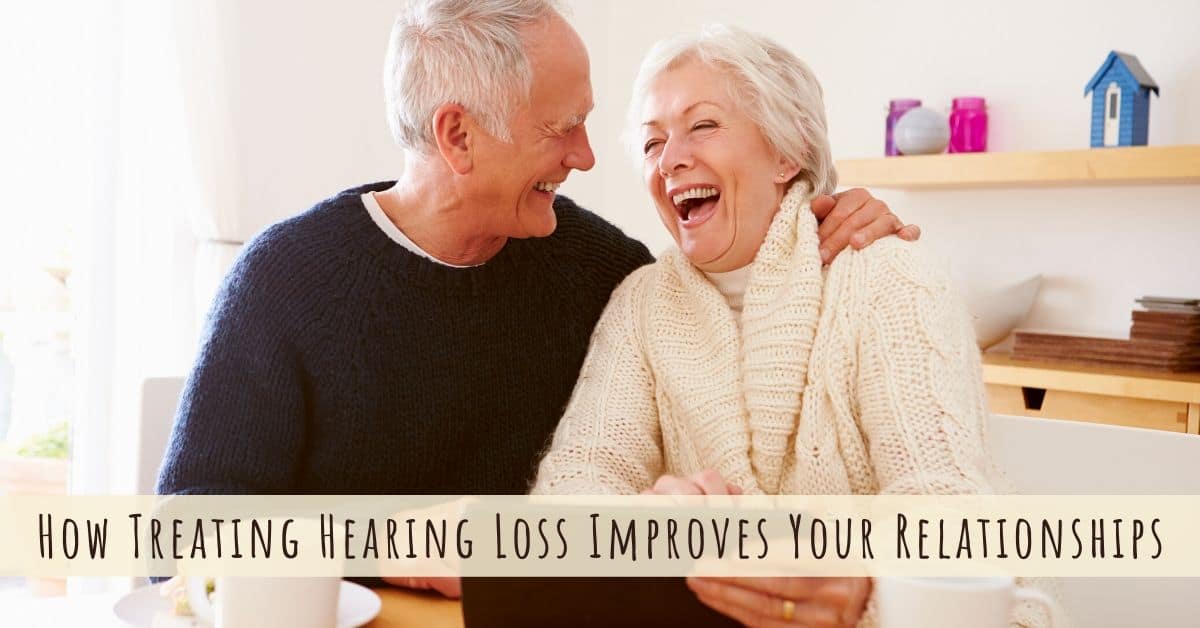- Volunteering for Hearing Health Causes - May 27, 2025
- Questions to Ask During Your Hearing Health Appointment - May 16, 2025
- Exploring Alternative Therapies for Hearing Loss - May 6, 2025
Have you noticed a difference in any of your relationships lately? Maybe you and your spouse aren’t having the kinds of long chats you used to, or maybe you’re not seeing certain friends as often as you once did. It could be that they, or you, are experiencing hearing loss that is making communication more difficult than it once was.
Maybe you’re already aware of your or your loved one’s hearing loss, and that’s why you’re reading this. Many people experience hearing loss (their own or a close person’s) with a degree of grieving; it can be a big change that nobody really welcomes. And as hearing loss progresses, research shows that it nearly always strains our relationships with the people in our lives.
About one-third of people with untreated hearing loss report that it has cost them at least one relationship, some even saying it contributed strongly to a divorce. Forty-four percent said hearing loss had strained relationships with loved ones.
Try and See the Other’s Point of View
It can be hard for those with untreated hearing loss to realize just how frustrating it can be for those closest to them to have to repeat themselves over and over, to struggle over the volume of the television, to go to restaurants not because the food is great but because the atmosphere is quiet. The people around those with untreated hearing loss end up having to accommodate in more ways than they might have guessed.
And those with normal hearing who are accommodating a loved one with untreated hearing loss might not realize just how exhausting hearing loss is, or the isolating feeling of being alone in a crowd when conversations are happening all around you and you can’t catch any of them.
Hearing Loss Robs Us of Intimacy
While we can usually work around hearing loss to make plans, get chores done, and schedule rides and errands, the thing we might forget we’re missing out on are the little things. Jokes and stories we tell each other, the kind of free and easy communication we once enjoyed when we had normal hearing.
Relationship experts talk about healthy relationships’ reliance on each partner’s ability to respond to the other’s “bid for attention.” When you make a little joke, point out a bird through the window, or want to tell a story about a funny interaction you just had with the mail delivery person outside, you’re making a bid for your partner’s attention. Research shows that as hearing loss progresses, these are the things we will miss out on, and our feeling of intimacy suffers. Some people with untreated hearing loss can end up lonely, depressed, or paranoid.
Hearing Aids Can Help
The good news is there’s no reason any of this needs to happen. You can continue to engage in conversation with friends and loved ones as you always have by seeking treatment for your hearing loss. Eighty-five percent of people who get hearing aids report satisfaction with them, and many people have said that hearing aids saved their marriages or partnerships. It’s hard to describe or imagine just how much life can change by simply treating a problem like hearing loss.
It makes sense: the people we become closest with are often the people with whom we communicate most easily. If you’re new to hearing loss, that makes it harder to communicate with everyone. If you’re feeling tired more often than you’re used to or feeling lonely more often, it’s likely that your hearing loss is the cause. In the case of age-related hearing loss, many people mistake the exhaustion that comes with straining to hear as a separate sign that they’re “getting old,” when really if they were to treat their hearing loss they would find themselves able to engage for much longer.
Modern hearing aids are programmed to match your specific frequency deficiencies, meaning that what you hear in the end can be very close to your former, normal hearing ability, depending on the severity of your hearing loss. They can help reduce background noise and emphasize speech, and they’re smaller than ever- many models are nearly invisible. Don’t let hearing loss get the better of you. Schedule a hearing test today and improve your relationships, and more!

